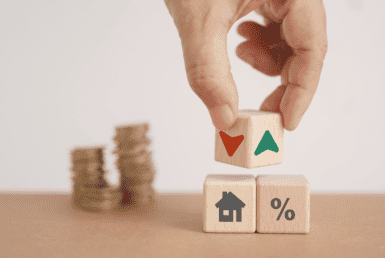How to buy property in France

When the buyer and seller have agreed on the price and terms of the deal, a purchase offer is prepared with the terms of the deal. This is signed by both parties, but in effect only obliges the seller legally. The buyer is, of course, morally obligated.
A purchase agreement is then drawn up, which forms the basis for the transaction and later the deed itself. Only the notary can draw up the deed.
In France, the buyer should expect approximately 7.5% in purchasers costs. These costs must be added to the purchase price.
When buying a new build, the purchasers costs are reduced to 2.5%.
In France, property is bought as is, which is why the seller basically has no responsibility for defects in the property. This regardless of whether these defects were visible at the buyer’s inspection of the home or hidden and only discovered after takeover. If it can be proven that the seller has deliberately withheld or hidden a damage/defect in the home, they can be held liable. However, the burden of proof is difficult to sustain, and any lawsuit will typically be costly and lengthy. Therefore, it is important to examine the property carefully before entering into the purchase agreement.
The purchase price may include furniture and other property inventory. If necessary, a detailed inventory/furniture list must be prepared. It is an advantage for the buyer to price this as it reduces the trading costs for the buyer.
In connection with the transaction, various statutory documents must be prepared. There is a difference in which documents are to be used depending on whether it is an apartment or villa that is being traded. But also when the property was built and where it is located in France.
As a starting point, certificates must be prepared for termites, asbestos, energy consumption, electricity, gas, lead and the risk of natural and technological disasters.
In the case of a villa, there must also be a report from SPANC if there is a septic tank on the property.
In the case of apartments and properties in owners’ associations, the property must be measured on the inside with a specified net area on the property (Loi Carrez).
Furthermore, statutory documents from the owners’ association must be available on all the land registers that are being sold (apartment, parking, garage, basement). The documents from the owners’ association include, among other things, articles of association and modifications thereto, general meeting minutes from the 3 most recent years and information on the last 2 years’ joint expenses and unforeseen expenses on the property.
Once the agreement has been signed by both parties, the statutory 10-day withdrawal period enters into force. The buyer can make use of this right of withdrawal at no cost.
Before the expiry of the statutory right of withdrawal, the buyer must make a payment of typically 10% of the purchase price. This is paid into the notary’s account to secure both parties.
When buying property in France, it is possible to enter into a purchase agreement as a cash transaction or with financing reservations. This is has to be decided through a negotiation with the seller.
If the parties agree on a cash transaction, the rest of the sale price is paid immediately before the deed signature.
In the case of a trade with financing reservations, the seller must wait 45 – 60 for the buyer to obtain the necessary financing, as stipulated in the purchase agreement. The transaction is not considered final until the buyer has been approved by their bank.
If the buyer cannot obtain financing, the transaction lapses at no cost to the buyer.
When a property is traded in France, the vast majority of municipalities have a right of first refusal with a response period of 2 months. The right of first refusal is intended to avoid “black money”, but is also used if a municipality has a desire to develop a part of the city in a certain direction or a desire for the property to be used for social purposes.
Some municipalities respond quickly, others on the last day and some not at all. In any case, the deed can be signed at the earliest after the 2 months.
It therefore varies how quickly a deed can be signed after the conclusion of the purchase agreement. If there is no financing reservation and the relevant municipality does not have a right of first refusal, the deed may be signed 2 months after the conclusion of the purchase agreement.
If there is a financing reservation and the municipality has a right of first refusal, the deed can probably not be signed until 3 – 4 months after the signing of the purchase agreement.
It is advisable for the buyer to inspect the property before signing the deed. This is to ensure that the property looks like it did when it was purchased. And to ensure that other agreements regarding any furniture/inventory have been fulfilled.
At the same time, meters for electricity, water, heat, oil, etc. are read.
The deed is then settled in the notary’s office. For the meeting, the buyer must bring home/contents insurance on the purchased property as well as a passport or other valid ID.
The French deed is a comprehensive document and includes, among other things, information about the property, previous ownership, easements, information about the buyer’s possible loans, a summary of technical reports, etc.
If you do not read and understand French, the notary will make sure that there is an interpreter present who translates everything into your national language. This is mandatory and costs 400 – 500 €.
Should you be prevented from attending, a power of attorney can be signed for the notary, who will then sign the deed on your behalf.
Once the deed has been signed, you will be given the keys to the home together with an “attestation de vente”, which is a temporary access document.
The deed itself will be sent after registration and this typically takes 6 – 12 months.
Upon signing the deed, the buyer must reimburse Taxes Foncières, consumption taxes as well as any common expenses. As of 1 January, the owner pays Taxes Habitation for the entire year, and there is therefore no refund of this tax.



